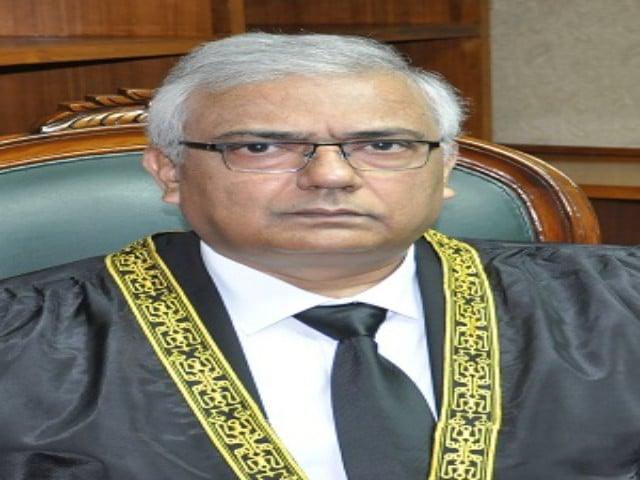Islamabad:
The lawyer for the petitioners, requesting the examination of the Supreme Court’s decision to allocate seats reserved for assemblies in Pakistan Tehreek-E-insaf (PTI), argued on Wednesday that the judges, who did not agree with the majority, could be part of the bench.
A constitutional bench of 11 members (CB), led by Judge Aminuddin Khan, heard the calls for revision against the decision of the Supreme Court on July 12, 2024 in the case of reserved seats. During the hearing, the lawyer for Sunni Ittehad Council (sic) Hamid Khan concluded his arguments.
Earlier this month, a CB of 13 members admitted for hearing the revision pleas with a majority decision of 11-2. Two members of the bench, judge Ayesha Malik and judge Aqeel Abbasi, rejected the revision as inadmissible.
Later, a new cause list was published, which said that judge Malik and judge Abbasi would not be part of the bench for hearing the petitions. During the hearing on Wednesday, judge Jamal Khan Mandokhail, member of the bench, asked if the judges, who do not agree, would remain on the bench.
Makhdomer Ali Khan said the judges, who do not give a decision on the merits, could be part of the bench. He said in the current scenario, if five other judges say tomorrow that the composition of the bench was not correct, then the majority decision would be a letter of seven judges.
And if a court order was signed, added the lawyer, it would be called the court order.
“There was such a story that there was no order of the court,” he continued. “Judges who do not give a decision on the merits can be part of the bench.”
Makhdomer Ali Khan began arguments after the SIC lawyer Hamid Khan finished his arguments on a various request concerning the live dissemination of the legal proceedings. He said that at least there was an example of approval of a pilot project in this regard.
Hamid Khan asked the court to first decide on his request for streaming directly from the procedure. However, Judge Amicin Khan replied that not all applications would be decided first. He said there were also more requests, which would be decided after all.
Hamid Khan also said that there had been many petitions against the 26th constitutional amendment to the Supreme Court. On this judge, Mandokhel asked what was the link between the calls of the revision and the 26th amendment.
Hamid Khan said that constitutional benches had been trained under the 26th constitutional amendment. Judge Amicin told the lawyer that the judges were bound by the Constitution of Pakistan, therefore, the Constitutional bench heard the case.
After Hamid Khan’s arguments, Makhdomer Ali Khan started his arguments. He said that the Supreme Court had given a short order on July 12, 2024, while the deposit of revision calls began on July 18. The detailed decision of the Supreme Court was rendered on September 23.




